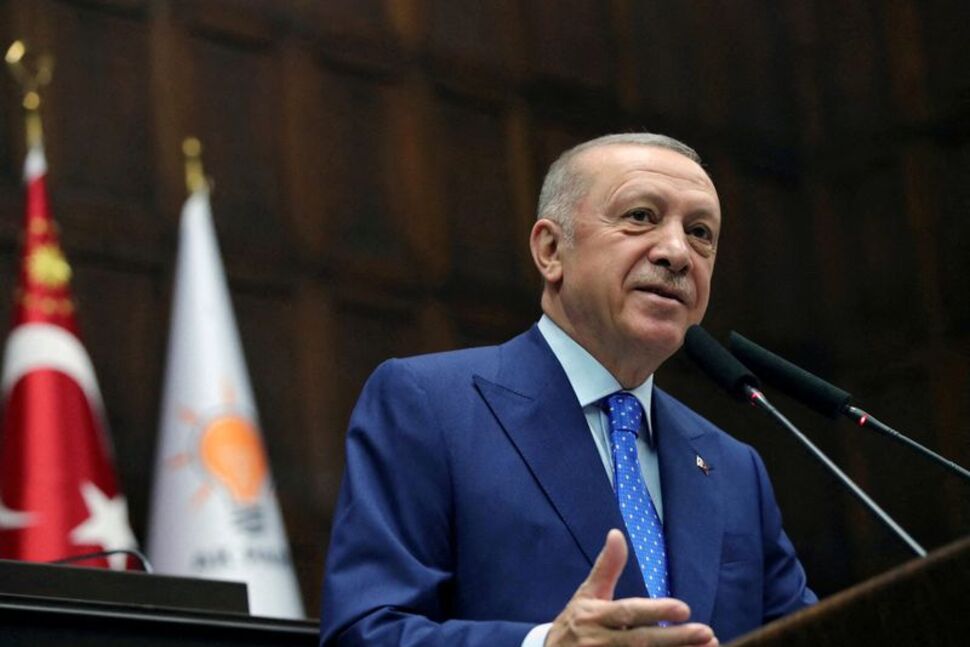Recently, Erdogan told a news conference that neither country had a clear and unequivocal view of terrorist organizations and could not be trusted, and accused the two northern European countries of harboring members of the Kurdistan Workers’ Party (PKK) and followers of Fethullah Gulen.
For the last 40 years, the Turkish government has declared the fight against the PKK as its red line and has not given up any measure in this regard. Ankara insists that any new candidate for NATO membership should acknowledge Ankara’s concerns about the militants, both inside Turkey and beyond its borders with Syria and Iraq.
Also during the term of Justice and Development Party (AKP), Turkey has pledged to block requests from countries that have imposed sanctions on Ankara. Turkey has also called for an end to restrictions on arms exports to the country, which could be seen as Ankara’s interest in re-entering the US F-35 sales program as one of Turkey’s most prominent demands. The sale of the advanced military aircraft was banned after the purchase of S-400 missile defense systems from Russia.
Therefore, security and economic issues seem to be the two main axes of tension in Turkey-West (NATO) relations, and the main audience for the Turkish-Western challenges is probably in Washington. Turkey’s policy of opposing membership of Finland and Sweden in NATO is important because without the support of all NATO members, Stockholm and Helsinki cannot join the military alliance. Therefore, Sweden and Finland need Turkey’s support in trying to join the military alliance. Turkey’s current policy can also be examined from both domestic and international dimensions; while Turkey seeks to work closely with the rest of NATO members in many areas, however, Erdogan is now seeking maximum domestic support in Turkey. By opposing the membership of Sweden and Finland, he seeks to create a legendary mentality of himself as a unique leader in Turkish history. He had previously said he would not repeat the same mistake made by the Turkish military government in 1980, when it allowed Greece to return to the NATO military branch. Therefore, although there is a possibility of agreement between the Turks, the Swedes and the Finns, the notion that Erdogan insists on Turkey’s demands will be very effective in gaining maximum domestic support, as a strong leader, in the upcoming elections.
At the international level, Turkey is trying to strengthen its security, remove all structures that threaten Turkey’s security and, as far as possible, cut off the security and support umbrella of Western countries from Ankara’s opposition. With this policy, Turkey directly expresses its dissatisfaction with the methods of its seemingly Western allies; that is to say, the same countries that allow Turkish anti-security agents to continue operating in their own countries; this is contrary to the spirit of unity and understanding of “one NATO”.
Turkey, which was formed according to Article two of the Constitution of the New Republic in 1924 on modern foundations, under its constitution has the opportunity, regardless of its ideological burden, simultaneously with membership in NATO, play an active role in the Arab world, and as an observer member in the European Union, be an ally of the West in the Cold War and at the same time pursue long-term cooperation with the East and Central Asia. Therefore, Turkey hopes that it will get better concessions from the West in addition to the lifting of sanctions. However, it should be noted that there are several strategic links between Turkey and the West, and therefore the country is trying to balance the level of tensions and differences with the West, especially NATO members, while trying to balance its foreign relations. Therefore, Turkey’s many interests are tied to NATO and Russia. The fields of energy, security and arms procurement are among the platforms that make simultaneous cooperation with NATO and Russia a necessity for that country. Therefore, one of the reasons for Turkey’s opposition to Sweden and Finland membership in NATO should be sought in line with Ankara’s policy of balancing with regard to Russia and the West.










0 Comments